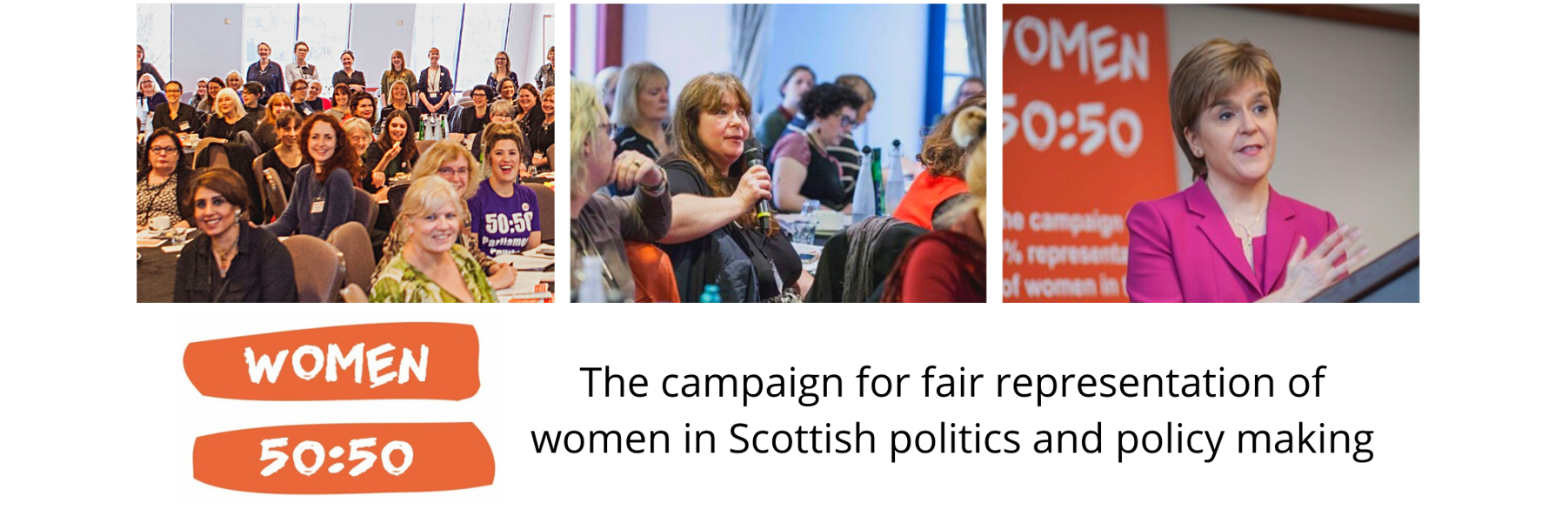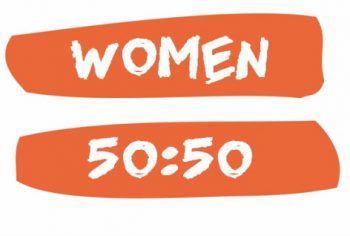We have put together a Q and A to help counter some of the arguments against legal quotas.
Elected representatives should be there on merit, regardless of gender.
If it was this simple, why are only one third of Scotland’s MSPs women, and why has the number of women representatives gone down since the Scottish Parliament was established in 1999? Why are so few of our councillors in Scotland women? We agree that merit is what should matter, and we want true merit to be the reality in Scotland’s politics. But we do not have a meritocracy currently, if that was the case, we would be suggesting that men are naturally more able than women and are therefore over-represented. That is why action is needed to create a field truly based on merit.
The reality is, institutionalised inequality and sexist attitudes stop most women from reaching their full potential in public life. If these inequalities didn’t exist we would already have a fair number of women in parliament. We are not the only one’s calling for this, in January 2017 the UK Government Women and Equalities Committee agrees – Read the full report.
Why does it matter that we have women in parliament, councils and boards?
Every decision made at these levels impacts our daily lives and it is for that simple reason we feel the people impacted by these decisions should be around the decision making table. That is true democracy. Women’s lived experiences need to be included in these decisions, as do disabled people, black minority ethnic people, LGBT people, carers, young people, immigrants. Decisions made with diverse minds, are better decisions. When women are missing from these roles and from public life, not only does their status diminish in society but we allow young people (particularly girls) to perceive that leadership and politics is not for them; You cannot be what you cannot see. Read more about why women around the decision making table matters and what they bring in this UN Report.
Perhaps women don’t want to be in elected positions?
This is simply gender stereotyping. We believe that men and women can do whatever they put their minds to, and that society should encourage and support all of us to reach our potential. If women do not come forward for elected positions, it is either because they don’t want to, or as is often the case, they have been made to feel that it is not for them.
The idea the women are simply not interested in becoming representatives, down plays the very real consequences of sexism and the attitudes that continue the disparity between men and women
How would this work?
This campaign is focused on ensuring there are at least 50% women candidates on the ballot paper for local and national elections through legislation. This would mean that where parties use some voluntary measures to ensure they have women candidates, all parties would now be required to take some form of action to ensure that at least 50% of their candidates in the Scottish Parliament and local council elections were women. This is not a campaign for reserved seats in the Parliament, but a campaign to give voters a choice representative of society. Who is elected from the a more representative list of candidates is in the hands of the voter, as it is now.
Isn’t this just a campaign for women who already have these opportunities?
No, and we are working hard to make sure that is not the case. We want to see a Scotland were all women who are currently under-represented, have access to power. There has never been a woman of colour elected to the Scottish Parliament, the number of disabled women and working class women is dismally low compared to the population. This illustrates that along with gender disrimination, intersecting discriminations based on race, class and disability can be playing a role in preventing women from political participation. In a society where these inequalities are institutionalised, political under-representation is going to be one of the consequences. We want to see political parties take responsibility for their internal cutures by taking radical action to eliminate all discrimination and tackling any and all barriers to participation.
We have a First Minister who is a woman – sexism in politics isn’t a problem
Having a woman First Minister is exceptional and something the campaign is excited about. But that doesn’t change the reality that only 34 per cent of MSPs are women MSPs and 29 per cent of councillors. We should see this moment as a catalyst for change, and we welcome it as an opportunity for women to see what they can achieve in public life.
Sexism is inherent in our society and politics does not escape it. Financial barriers, attitudes, gender stereotyping, disproportionate care responsibilities and media, all play a role in the sexism that prevents a fair number of women being in public life today.
Sexism is a problem, institutionalised inequality in leadership is a problem and there is academic, social and lived experience evidence which clearly illustrates that. Engender Scotland’s recent report “Sex and Power” explains this thoroughly.
Surely quotas are undemocratic?
Simply put, no they are not. At the moment, eight EU member states have legal quotas; Sweden has had them since the 1970’s. Legal quotas improve democracy, by giving the electorate the widest possible choice of candidates, and ensuring that our elected institutions reflect society as it is, not a closed shop.
The idea of quotas or “special measures” for gender equality is not new and is not in anyway undemocratic, in fact they have a legal basis. The Equality Act 2010 allows for temporary special measures for parties to implement all women shortlists until 2030. If we recognise that inequality exists for women, why are we only relying on voluntary measures to pursue social justice?
The United Nations Committee on the Elimination of Discrimination Against Women (CEDAW), a legally binding international treaty, has recommended quotas and special measures in it’s bill since 1981:
“Article 4, paragraph 1 : Adoption by States Parties of temporary special measures aimed at accelerating de facto equality between men and women shall not be considered discrimination as defined in the present Convention, but shall in no way entail as a consequence the maintenance of unequal or separate standards; these measures shall be discontinued when the objectives of equality of opportunity and treatment have been achieved”
Quotas are not the only solution.
There are many reasons behind women’s inequality in representation. We believe that quotas are a fair fast track to equality and we also appreciate that support mechanisms and training for women leaders are making a difference. The inequality starts from being girls and Women 5050 recognises that, as a society, we need work on tackling gender stereotypes and pursue political education. A bottom up and top down approach is needed, quotas are a fundamental part of this.
How come you are only fighting for the “top jobs” to be 50/50, what about 50/50 women bricklayers or 50/50 to get men into nursing?
We are fighting for this, because these positions make decisions about all our lives! Our economy, our schools, our hospitals, our environment – they are make the decisions related to fairness in across the labour market. We believe that equality here, absolutely has a knock-on effect on equality across our society. There are multiple campaigns across Scotland to increase the number of women in the construction industry and to get men into nursing or social work. These are important issues that we support and promote, where we can. Our focus is, rightly, on the decision makers of Scotland.
How is Women 50:50 funded?
Well, we are not. We receive no Government or trust funding, all of our work is enabled through small donations from our events and through volunteer work by our steering group. We purposefully arrange calls and meeting to develop the campaign in the evening to avoid this interfering with anyone’s paid work and we appreciate that caring responsibilities may mean not all of our steering group is available to participate at all times. We operate flexibly, where we can and how we can.

